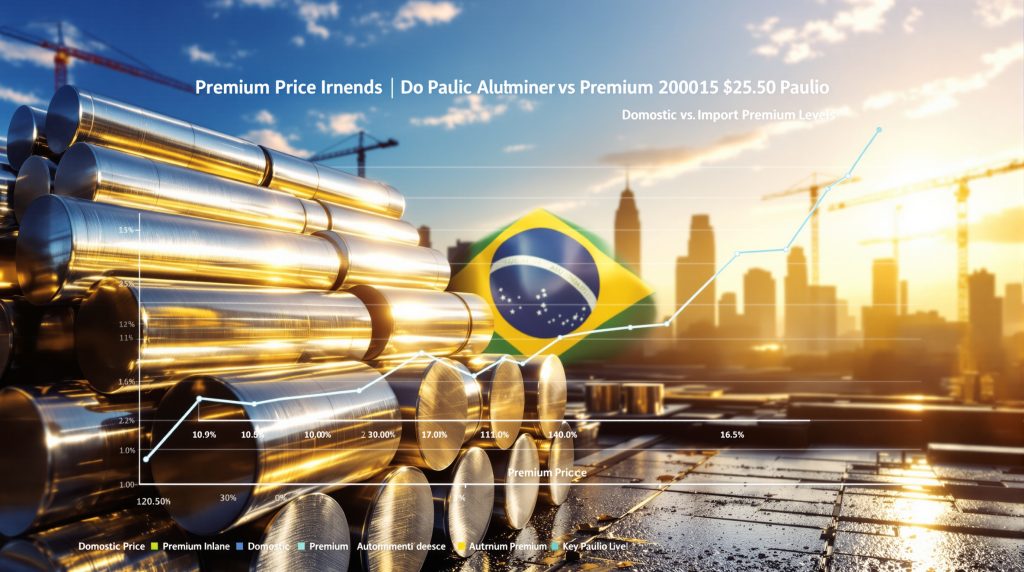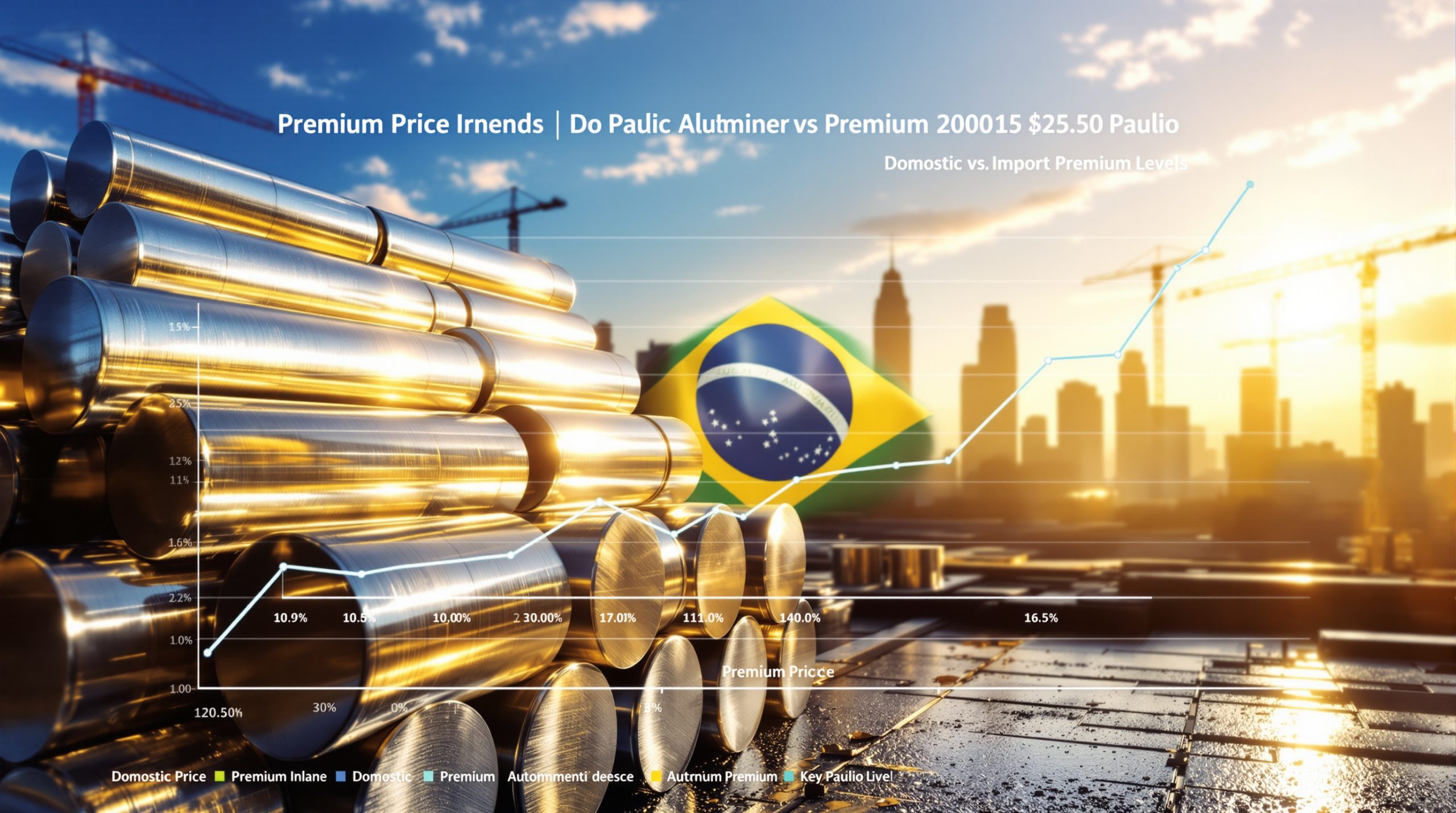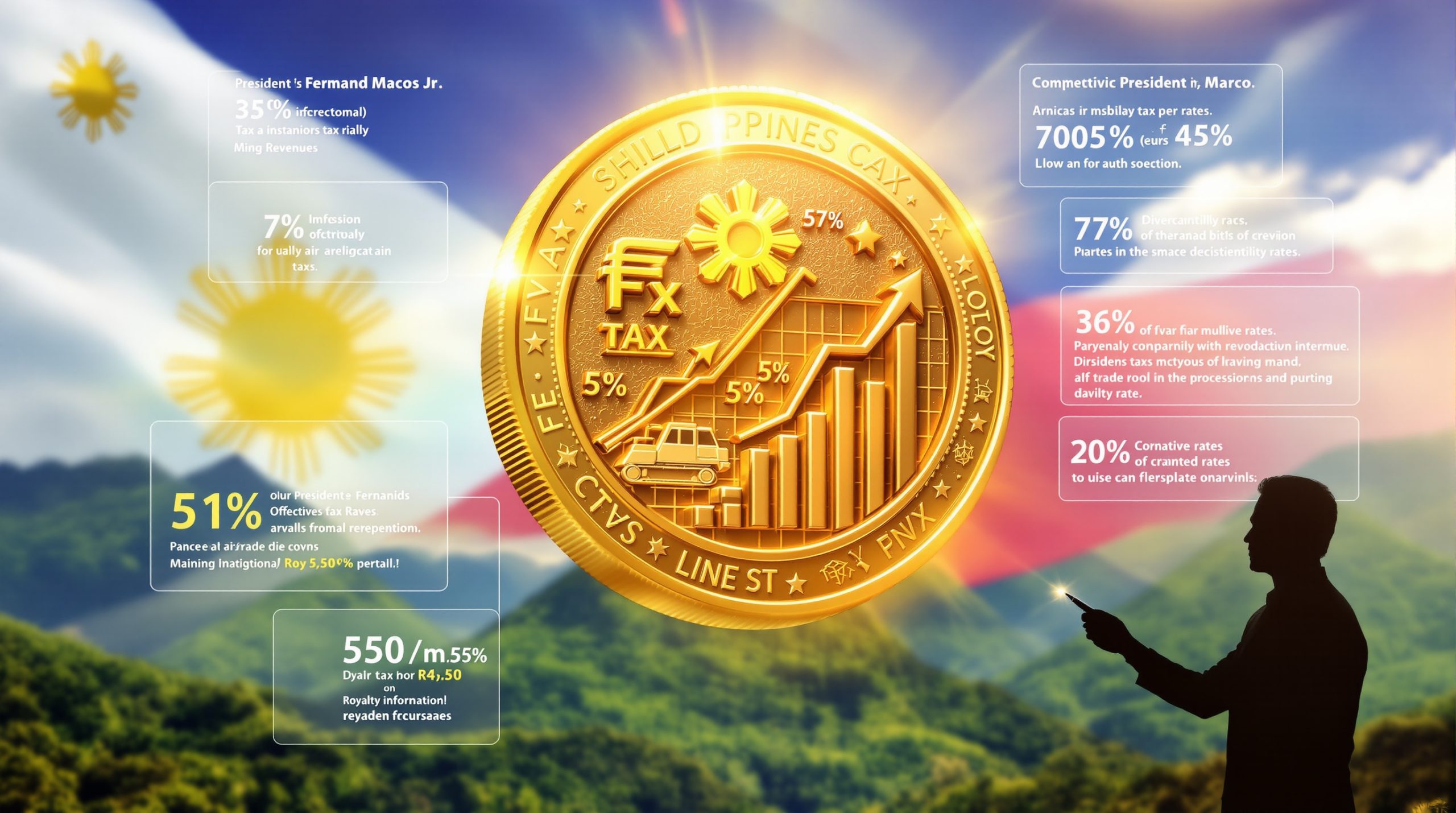Understanding the Brazilian Aluminium Billet Premium: Market Dynamics and Trends
The domestic aluminium billet premium in Brazil represents a critical benchmark for the country's evolving metal industry. As Brazil transitions from import dependence to greater self-sufficiency, this premium has become an essential reference point for producers, traders, and consumers throughout the aluminium value chain. The premium's structure, assessment methodology, and market implications offer valuable insights into both local market conditions and Brazil's position in the global aluminium landscape.
What is the Domestic Aluminium Billet Premium in Brazil?
Definition and Market Significance
The domestic aluminium billet premium represents the additional cost above London Metal Exchange (LME) base prices that buyers pay for physical delivery of aluminium billets in Brazil. This premium specifically covers extrusion-grade 6063 and 6060 alloy billets delivered duty-paid to São Paulo, functioning as a crucial benchmark for contract negotiations and spot market transactions throughout the country.
The premium serves as a reflection of Brazil's unique market conditions, including logistics costs, quality specifications, and the local supply-demand balance. Launched on September 4, 2025, by Fastmarkets, this benchmark addresses a critical need for transparent pricing in Brazil's increasingly self-sufficient aluminium sector.
As Grace Asenov, Regional Editor for Base and Energy Metals at Fastmarkets, notes: "The introduction of a domestic aluminium billet premium for Brazil provides market participants with a transparent, reliable reference that reflects the realities of the local industry." This benchmark is particularly significant as Brazil's aluminium sector continues its growth trajectory across construction, automotive, packaging, and renewable energy applications.
Premium Structure and Assessment
The current domestic aluminium billet premium range in Brazil stands at $470-530 per tonne (as of August 2025). This assessment is published biweekly, following actual market transactions to ensure it accurately reflects current trading conditions. The assessment methodology focuses on standard industry specifications, including:
- Minimum transaction size of 100 tonnes
- Standard 30-day payment terms
- Premium applies to 6-8 inch diameter billets delivered to the São Paulo region
Aluminium billets represent semi-finished products primarily used in the production of extrusions, which account for approximately 35-40% of global aluminium consumption. These extrusions are subsequently shaped into various applications including windows, doors, frames, and tubing used across multiple industries.
How Has Brazil's Aluminium Market Evolved?
Transition from Import Dependence to Self-Sufficiency
Brazil's aluminium sector has undergone a significant transformation in recent years, evolving from a primarily import-driven market to establishing a robust internal production and consumption ecosystem. This evolution reflects broader trends in Brazil's industrial development, with domestic production capacity expanding considerably since 2023.
The country's reduced vulnerability to international supply disruptions represents a strategic advantage, particularly as global supply chains face increasing commodity market volatility. Local smelters have responded to this opportunity by increasing their value-added production, with a particular focus on extrusion-grade billets that meet the quality requirements of Brazil's growing manufacturing sector.
Vertical integration strategies have further strengthened the domestic supply chain, creating more resilient connections between primary aluminium production and downstream fabrication. This integration provides enhanced supply security for Brazilian manufacturers while reducing dependence on imported materials.
Key Market Drivers
Brazil's competitive advantage in aluminium production stems from several fundamental factors:
- Abundant bauxite reserves: The country possesses substantial high-quality bauxite resources, providing a secure supply of the primary raw material for aluminium production
- Hydroelectric power availability: Access to cost-effective renewable energy supports efficient smelting operations, offering both economic and environmental advantages
- Growing construction sector: Sustained demand from Brazil's construction industry creates a stable market for aluminium extrusions
- Automotive manufacturing: Brazil's position as a regional automotive manufacturing hub drives consistent demand for lightweight aluminium components
- Renewable energy expansion: The country's growing renewable energy sector creates additional demand for aluminium components in solar mounting systems and wind energy infrastructure
Why Are Domestic Premiums Higher Than Import Premiums?
Premium Comparison Analysis
The current differential between domestic and imported aluminium billet premiums in Brazil reveals important market dynamics:
- Domestic billet premium: $470-530 per tonne
- Imported billet premium: $310-340 per tonne
- Premium differential: Approximately $160-190 per tonne advantage for domestic suppliers
This substantial premium differential demonstrates the value that Brazilian buyers place on locally-produced material, reflecting both tangible and intangible benefits that domestic suppliers can provide compared to imported alternatives.
Factors Supporting Higher Domestic Premiums
Several key factors contribute to the premium commanded by domestic suppliers in Brazil's aluminium billet market:
- Guaranteed quality consistency: Local producers maintain tighter control over specifications and quality parameters, reducing variation and meeting precise customer requirements
- Reduced lead times: Domestic supply eliminates lengthy shipping times, allowing extrusion companies to operate with leaner inventory and more responsive production scheduling
- Lower inventory carrying costs: Shorter supply chains reduce the financial burden of maintaining buffer stocks, improving capital efficiency
- Reduced currency risk: Domestic transactions minimize exposure to exchange rate fluctuations, simplifying financial planning and risk management
- Enhanced supply security: Local suppliers offer greater flexibility in delivery scheduling and can respond more quickly to changes in demand patterns
- Streamlined logistics: Domestic supply chains involve fewer transportation stages and less complexity, reducing the risk of delays or disruptions
The premium differential also reflects the strategic value of supply security in a market where consistent material availability directly impacts manufacturing continuity and customer satisfaction.
What Impact Have Recent Trade Policies Had on Brazil's Aluminium Market?
Effects of US Import Tariffs
The implementation of aluminium tariffs by the Trump administration in March 2025 created significant disruption in global aluminium trade flows, with particular implications for Brazil's export-oriented producers. These US tariffs and inflation effectively reduced the competitiveness of Brazilian aluminium products in North American markets, necessitating strategic adjustments throughout Brazil's aluminium sector.
As Andy Farida, Senior Analyst at Fastmarkets, observed: "Having a domestic price is crucial for Brazil, especially in light of the tariffs introduced by the Trump administration. This benchmark highlights Brazil's resilient domestic market. It reduces reliance on imports and strengthens its ability to navigate these challenges independently."
The tariff implementation resulted in volumes previously destined for export being redirected to the domestic market, temporarily increasing local supply and contributing to premium volatility during the policy adjustment period. This market disruption underscored the importance of having robust domestic demand to absorb production during periods of export market turbulence.
Market Adaptation Strategies
Brazil's aluminium industry has demonstrated remarkable resilience in response to changing trade dynamics, implementing several strategic adaptations:
- Domestic market focus: Producers have pivoted to prioritize domestic customers, strengthening relationships with local extrusion companies and fabricators
- Alternative export markets: Export strategies have diversified to reduce dependence on North American destinations, exploring opportunities in South America, Europe, and Asia
- Value-added product development: Manufacturers have accelerated innovation in specialized alloys and premium products to maintain margins despite trade barriers
- Industry advocacy: Trade associations have engaged in coordinated efforts to advocate for reciprocal trade measures and negotiate bilateral agreements
- Sustainability credentials: Producers have increased emphasis on low-carbon production and responsible sourcing to differentiate Brazilian aluminium in global markets
These adaptation strategies highlight the industry's flexibility and long-term strategic vision, positioning Brazil's aluminium sector for sustainable growth despite trade policy challenges.
How Do Premiums Reflect Brazil's Position in Global Aluminium Markets?
Regional Market Context
Brazilian aluminium premiums historically trade at different levels compared to other Latin American markets, reflecting the country's unique position in regional metal flows. The premium spread between Brazil and Mexico, for example, typically ranges from approximately $70-90 per tonne, illustrating different market dynamics and supply-demand balances.
The correlation between Brazilian premiums and global benchmark regions shows increasing independence, suggesting that local factors are playing a more significant role in price formation. This growing autonomy in premium development reflects Brazil's transition from a price-taking market participant to a more influential regional hub.
Regional premium patterns increasingly reflect logistical efficiencies and trade flow dynamics specific to Brazil, with domestic production capabilities enabling more efficient distribution compared to imported material that must navigate complex international shipping routes and customs procedures.
Historical Premium Trends
Brazil's aluminium billet premiums have demonstrated significant volatility over the past decade, with periods of extreme market tightness driving premiums above $400 per tonne in 2013. These historical patterns reveal several important market characteristics:
- Cyclical patterns: Premium movements show clear correlation with construction sector activity, reflecting the dominance of building applications in aluminium extrusion demand
- Currency effects: The Brazilian real's exchange rate fluctuations significantly influence premium movements, with currency depreciation typically leading to higher domestic premiums as imports become relatively more expensive
- Domestic focus: Premium forecasting increasingly considers local market factors rather than global indicators, recognizing Brazil's growing market independence
- Supply constraints: Historical premium spikes often coincide with domestic production limitations or logistical disruptions
Understanding these historical premium dynamics provides valuable context for interpreting current market conditions and anticipating future trends in Brazil's aluminium sector.
What Are the Key Applications Driving Aluminium Billet Demand in Brazil?
Sector-Specific Consumption Patterns
Brazil's aluminium billet demand is distributed across multiple industry sectors, with varying consumption patterns and growth trajectories:
- Construction sector: Represents approximately 45% of extrusion consumption, driven by commercial and residential building activity
- Transportation and automotive: Accounts for roughly 25% of market share, supported by Brazil's substantial vehicle manufacturing industry
- Consumer durables and industrial applications: Constitutes approximately 20% of demand, including furniture, appliances, and machinery components
- Renewable energy infrastructure: Represents around 10% of consumption with a rapid growth trajectory, particularly in solar mounting systems and grid infrastructure
Each of these sectors demonstrates unique demand characteristics and seasonal patterns, contributing to the overall stability of Brazil's aluminium consumption base while providing diverse growth opportunities.
Application-Specific Requirements
The requirements for aluminium billets vary significantly across application areas:
- Construction extrusions: Focus on structural integrity and finish quality, with architectural applications demanding consistent appearance and surface characteristics
- Automotive components: Emphasis on weight reduction and strength characteristics, with growing demand for specialized alloys that enable vehicle lightweighting
- Industrial applications: Precision tolerances and specialized alloy properties to meet specific performance requirements in machinery and equipment
- Renewable energy: Corrosion resistance and electrical conductivity optimization for long-term performance in outdoor environments
These diverse application requirements drive ongoing innovation in alloy development and extrusion technology, creating opportunities for specialization and value-added production within Brazil's aluminium sector.
How Do Market Participants Use the Domestic Premium Benchmark?
Practical Applications of Premium Data
The domestic aluminium billet premium benchmark serves multiple practical functions for participants in Brazil's aluminium market:
- Contract structuring: Provides a reliable basis for premium negotiations in term contracts, creating a common reference point for buyers and sellers
- Risk management: Supports the development of hedging strategies for premium exposure, complementing LME-based price risk management
- Investment planning: Informs capital allocation decisions for capacity expansion, helping producers evaluate the financial viability of new projects
- Market analysis: Functions as a key indicator of regional supply-demand balance, supporting strategic planning and operational decision-making
According to Fastmarkets, the benchmark "offers clarity and consistency for market participants including producers, traders, and extrusion companies," providing "the tools needed for confident, informed transactions" in Brazil's aluminium sector.
Stakeholder Perspectives
Different market participants utilize the premium benchmark in distinct ways:
- Producers: Monitor premium trends to inform production scheduling and marketing strategies, optimizing output based on market conditions
- Consumers: Use the benchmark for procurement budgeting and cost management, providing a transparent reference for price negotiations
- Traders: Identify arbitrage opportunities between domestic and import markets, facilitating efficient market operation
- Financial institutions: Incorporate premium data into market intelligence for commodity financing decisions, improving risk assessment
These diverse applications highlight the premium benchmark's central role in creating market transparency and supporting efficient price discovery in Brazil's aluminium billet sector.
What Factors Will Shape Future Premium Trends?
Short-Term Market Outlook
Brazil's domestic aluminium billet premium is expected to demonstrate relative stability through Q4 2025 as market equilibrium maintains, with several factors influencing near-term developments:
- Seasonal demand patterns: Construction sector activity typically fluctuates with seasonal weather patterns, potentially creating temporary premium pressure points
- Energy cost fluctuations: Variations in hydroelectric power availability could impact production economics and subsequently affect premium levels
- Currency movements: Continued volatility in the Brazilian real will influence the relative competitiveness of imports and affect premium spreads
- Global supply chain dynamics: Ongoing adjustments to international aluminium flows following trade policy changes may create temporary imbalances
These short-term factors will interact with broader market fundamentals to determine premium trajectories over the coming quarters.
Long-Term Market Drivers
Several structural factors will influence Brazil's aluminium billet premiums over the longer term:
- Infrastructure development plans: Brazil's substantial infrastructure needs suggest sustained demand growth for construction applications
- Decarbonization initiatives: Environmental considerations may create premium differentials for low-carbon billets produced using renewable energy
- Regional trade agreement evolution: Changes in trade policies could reshape premium structures by altering the competitive landscape for imports
- Technological advancements: Innovations in extrusion technology may alter quality premium components by changing performance requirements
As Andy Farida of Fastmarkets emphasizes, "Transparency is key to fostering trust and stability in the industry," suggesting that improved price visibility will support more efficient market operation and potentially reduce premium volatility over time.
How Does Brazil Compare to Other Aluminium Billet Markets?
Global Premium Comparison
Brazil's position in the global aluminium billet market can be assessed through comparison with other key regions:
| Region | Current Billet Premium ($/tonne) | Market Characteristics |
|---|---|---|
| Brazil | $470-530 | Self-sufficient, growing domestic demand |
| Europe | $380-420 | Mature market, energy cost pressure |
| US | $520-570 | Import-dependent, high logistics costs |
| Asia | $290-340 | Fragmented market, varied quality standards |
| Middle East | $330-380 | Export-oriented, competitive production costs |
This comparison reveals Brazil's relatively high premium environment, reflecting both the strength of domestic demand and the value placed on local supply security.
Competitive Positioning Analysis
Brazil's aluminium billet market demonstrates several distinctive competitive characteristics:
- Premium advantage over Asian suppliers: Brazil maintains a substantial premium differential compared to most Asian producers, reflecting quality perception and logistics advantages
- Quality differential with European material: The premium gap with European suppliers reflects perceived quality differences and relative logistics costs
- Tariff protection effects: US market premiums exceed Brazilian levels largely due to the impact of import tariffs on market dynamics
- Middle Eastern competition: Producers from the Middle East are increasingly competing in Brazilian import segments, leveraging cost advantages from new, efficient capacity
This competitive landscape continues to evolve as global production capacity adjustments and trade flow shifts influence regional market balances.
What Methodology Supports the Premium Assessment?
Assessment Process and Principles
The domestic aluminium billet premium assessment for Brazil follows a structured methodology designed to ensure accuracy and market representativeness:
- Data collection: Information is gathered through direct engagement with market participants, including producers, consumers, and traders
- Transaction verification: Actual completed transactions form the primary basis for assessments, providing concrete evidence of market levels
- Normalization procedures: Non-standard terms and specifications are adjusted to ensure comparability across reported data
- Statistical validation: Submitted data undergoes statistical analysis to identify and address potential anomalies
- Editorial oversight: Experienced market specialists provide judgment and oversight throughout the assessment process
This rigorous approach ensures that the published premium accurately reflects actual market conditions and provides a reliable reference for transactions and contracts.
Quality Assurance Framework
Several mechanisms work together to maintain the integrity of the premium assessment:
- Regular methodology reviews: Assessment procedures are periodically evaluated to ensure continued market relevance
- Transparent documentation: Complete documentation of assessment methodology provides clarity for market participants
- Compliance standards: Assessments adhere to international price reporting standards and best practices
- Independent verification: External reviews validate methodology application and ensure assessment quality
According to Fastmarkets, the premium assessment builds on "sustained investment in the Latin American aluminium market" and "complements Fastmarkets' existing suite of aluminium scrap price assessments" in Brazil and other regions across the globe.
FAQ: Brazilian Aluminium Billet Premiums
What exactly does the aluminium billet premium represent?
The premium represents the additional cost above the LME base price that buyers pay for physical delivery of aluminium billets with specific quality, dimensions, and delivery terms in the Brazilian market. It captures local market conditions that global exchange prices cannot reflect, including regional supply-demand dynamics and logistics costs.
How frequently are the Brazilian billet premiums assessed?
The domestic aluminium billet premium for Brazil is assessed biweekly, capturing actual market transactions and reflecting current trading conditions. This regular assessment schedule ensures that the published premium remains representative of market realities and provides timely information for contract negotiations and spot transactions.
Why is there a difference between domestic and import premiums?
Domestic premiums typically exceed import premiums due to advantages in delivery reliability, quality consistency, reduced currency risk, and simplified logistics that local suppliers can provide. The premium differential of approximately $160-190 per tonne represents the value that buyers place on these advantages and the security of local supply.
How do Brazilian premiums compare historically?
Brazilian premiums have shown significant volatility, exceeding $400 per tonne during market peaks in 2013, with patterns generally following construction sector activity and currency movements. Historical premium analysis reveals cyclical patterns that provide context for interpreting current market conditions and anticipating future trends.
What impact do currency fluctuations have on the premium?
The Brazilian real's exchange rate significantly influences premium levels, with currency depreciation typically leading to higher domestic premiums as imports become relatively more expensive. Currency movements affect both the competitiveness of imported material and the export economics for domestic producers, creating complex interactions with premium dynamics.
Further Exploration:
Readers interested in learning more about global commodity pricing methodologies and market trends can explore related educational content available through Fastmarkets' insights on Brazil's aluminium market, which offers additional perspectives on metals pricing and mining industry innovation.
Ready to Stay Ahead of the Next Major Mineral Discovery?
Discover significant ASX mineral discoveries as they happen with Discovery Alert's proprietary Discovery IQ model, transforming complex mining data into actionable investment insights. Explore why historic discoveries can generate substantial returns by visiting Discovery Alert's dedicated discoveries page.




